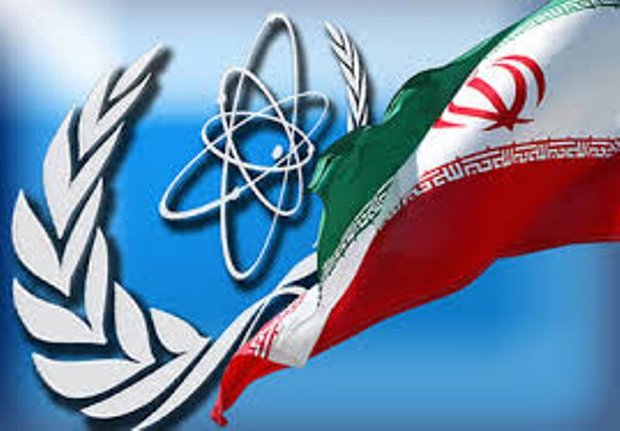A few weeks ago, new nuclear enrichment facility was inaugurated at Natanz, which will be producing centrifuges, while operating within the limits of the nuclear deal. The facility’s construction had begun even before the 2015 nuclear deal was inked, Iranian nuclear chief Ali Akbar Salehi informed, expressing hope that the first old-generation centrifuges will roll out in a month’s time.
For those fretting and fuming over lran’s decision to increase its nuclear enrichment capacity within the provisions of the deal, it is imperative to understand that Iran is doing so within its rights as a responsible nation and as a signatory of the Non Proliferation Treaty (NPT). Iran claims its rights under Article IV of the Treaty to pursue peaceful nuclear program for energy purpose, unlike some nuclear armed states that have not signed the NPT and clandestinely produced nuclear weapons.
Despite no credible evidence confirming the presence of nuclear weapons in Iran, the crippling economic sanctions against the country continue. The withdrawal of the US from the JCPOA, despite Iran adhering to all the commitments made under the accord, illustrates Washington’s hostility towards Iran and blatant double standards of the international community and the UN.
The negotiations between Iran and the West are stalled essentially because of West’s obstructionism and sanction policy. Iran did everything it could to save the deal, but the West, particularly the hawks in Washington, did everything they could to kill the deal. That’s the crux of the matter.
There is a sea of difference between rhetoric and reality when it comes to the policies of nuclear powers like the US. Their obligation and commitment under Article VI of NPT to work towards total disarmament has turned out hogwash. The five nuclear members of NPT together have more than 22,000 warheads, which is perhaps the biggest threat to world peace.
While Iran, which is a signatory of the NPT, is threatened with sanctions for pursing peaceful nuclear energy for energy purpose, some countries that have refused to sign the NPT and have armed themselves with nuclear weapons are hailed as ‘responsible’ nations. Some of them have even gone to war, unlike Iran, and continue to engage in blatant war-mongering and saber-rattling.
Israel has never allowed IAEA inspectors to inspect its nuclear sites. It has refused to confirm or deny the possession of nuclear weapons, but the cat was out of the bag way back in 1986 when an Israeli technician Mordechai Vanunu published details of Israel’s nuclear program in Sunday Times UK. He was soon arrested and charged for treason. On September 18, 2009, when the International Atomic Energy Agency (IAEA) called on Israel to open its nuclear facilities for inspection and adhere with the resolution regarding non-proliferation, it refused to comply. That is how rogue nations act.
Among the four states not party to the NPT, the case of India and Pakistan is curious. India first test fired in 1974 and Pakistan followed up in 1998. The two countries have gone to war on two occasions, and the border skirmishes continue, which could easily trigger another war. According to observers, the next war between these two estranged neighbors could easily destroy the whole region if nuclear arms are used. But, the international community seems least bothered about it. They are obsessed with the non-existent Iranian nuclear weapons.
India refused to sign the treaty as it found it ‘faulty’. During a visit to Tokyo in 2007, then Indian Foreign Minister Pranab Mukherjee said India refused to sign the treaty “not because of its lack of commitment for non-proliferation, but we consider NPT a flawed treaty.” Pakistan said it will not sign as long as India did not. Pakistani Foreign Ministry spokesman told a news agency few years ago that Islamabad was willing to abandon its position on the NPT in case India joined it. It is basically a tussle between two unruly kids, which can put the whole house on fire.
According to NPT, any nuclear deal between NPT member states and non-member states is illegal. Yet, the US went ahead with Indo-US nuclear deal in 2006, and China inked a civil nuclear deal with Pakistan in 2010, in direct violation of the NPT, which explicitly prohibits export of nuclear reactors to countries that have not signed the pact, in this case India and Pakistan. As per latest assessment of the Stockholm International Peace Research Institute, Pakistan now has 140-150 nuclear warheads and India has 130-140. Russia leads the pack with 6,850 nuclear warheads, followed by the US with 6,450 warheads.
So, who poses greater danger to the global peace and order? Is it Iran that has pursued nuclear program for energy purpose and always welcomed IAEA inspections, or countries that have not signed the NPT, secretly developed nuclear warheads, and even gone to war. Pertinently, Iran has never gone to war. It had to defend itself when the US-backed Saddam regime attacked it.
For Iran, not producing nuclear weapons or weapons of mass destruction is a religious obligation, a fact attested by the Supreme Leader’s decree against nuclear weapons. Tehran realizes that a nuclear armed Iran will lead to a nuclear race in the region and that could have ugly repercussions for peace. That is how responsible nations act.
MNA/TT

























Your Comment